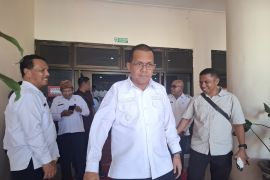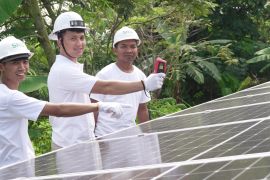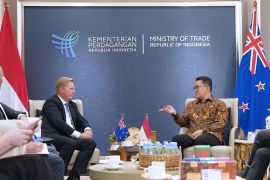Indonesia and China which had a big population were seeking to cooperate on renewable energy to anticipate the depletion of fossil energy resources.Jakarta (ANTARA News) - Indonesia and China are exploring cooperation on the development of renewable energy, a cabinet minister said.
Forestry Minister Zulkifli Hasan said here on Monday that Indonesia and China which had a big population were seeking to cooperate on renewable energy to anticipate the depletion of fossil energy resources.
"It is important for the two countries to develop renewable energy in the face of declining fossil energy resources. After all, China has relatively advanced technology on renewable energy, such as technology on the utilization of solar and hydro energy," the minister said.
The minister expressed his hope that the two countries would respectively set up a team to follow up on the results of a meeting between him and a Chinese delegation which was led by Cao Jialin, deputy technology minister at the Chinese Science and Technology Ministry.
Earlier, the forestry minister said that timber estate management and wood pellet product were two business sectors that were prospective for investors.
"Wood pellet as fuel is a renewable energy and environment friendly. This is because it involves a process of planting first and then utilizing it," the minister said.
At present, South Korea is encouraging the utilization of bio mass energy in the form of wood pellets in line with the shrinking of fossil fuel resources.
The problem is that the expansion of timber estate in South Korea faced land limitation problem.
The minister said that Indonesia needed to develop its bio mass energy because besides optimizing raw materials from timber estate the business also could absorb many workers.
Forestry Ministry Secretary General Hadi Daryanto said that there were three Korean investors who had been given permits by the ministry to develop timber estates and wood pellet factory with a production capacity of about 40,000 tons.
"The Korean investors needed large lands for their investment. The proposals that have been tabled cover 200,000 hectares and the ministry has approved 140,000 hectares with an investment of Rp6 trillion," he said.(*)
Editor: Heru Purwanto
Copyright © ANTARA 2011











